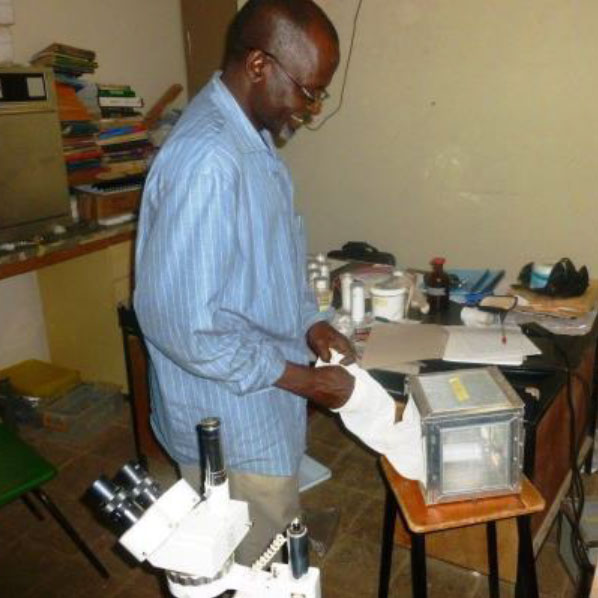Entomological monitoring plays a key role in malaria control programs. Understanding the behavior of the mosquitoes that carry malaria requires precise data on the vector’s density, feeding time, location, and its resistance to insecticides. Trained entomologists are critical to ensuring the necessary research is conducted and applied to crucial decision making in the deployment of malaria control interventions. The President’s Malaria Initiative (PMI) Africa Indoor Residual Spraying Project (AIRS) in Nigeria is helping to increase the knowledge around the behavior of the malaria-carrying vector, the anopheline species, by training entomologists and malaria vector control experts in universities and national malaria control programs.
To date, the PMI AIRS Project has trained 11 principal investigators, 88 entomology technician/mosquito collectors and several state and national vector control officers on integrated vector management and strategies. The project also trained members of the National Malaria Control Program (NMCP) on modern entomological techniques, such as pyrethrum spray catch, Centers for Disease Control and Prevention (CDC) light traps, larval sampling, susceptibility tests with CDC bottles, and data recording and reporting. The training is having a ripple effect as the trained principal investigators, who are also university lecturers and research fellows, are mentoring undergraduate and postgraduate students on these newly acquired entomological techniques. Furthermore, these students can now use this knowledge in their project and research theses, furthering the country’s entomological research capabilities. The project continues to train malaria program managers, vector control officers as well as young researchers from selected universities, and is developing a Post Graduate Diploma in Medical Entomology Curriculum for Nigerian universities.
“The efforts of the PMI AIRS Project in supporting malaria research in Nigeria cannot be overemphasized,” said Dr. Abudullahi Yahaya, Principal Investigator of the PMI AIRS Project’s Sokoto Sentinel Site and Senior Lecturer at Usmanu Danfodyio University in Sokoto. “With their support and training, more students are beginning to show an interest in the field of entomological research.”
This story was taken from www.africairs.net.

